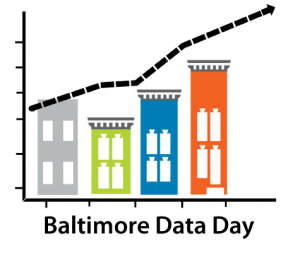More information about Data Day coming soon!
Sponsorship opportunities are available to organizations or individuals who would like to support Baltimore Data Day. Event sponsorship supports the mission of BNIA‐JFI, guarantees the conference remains free and open to the public, and ensures that requests by community development corporations and other community‐based organizations will continue to be serviced free of charge. Visit our Donation page or email us at [email protected] for more information about sponsoring this event.
| Archive of Past Data Day Presentations | Speaker Bios (2022)
Media Coverage
‘Everything matters to neighborhoods:’ Baltimore Data Week returns for city’s communities
Technical.ly Baltimore
Jul. 14, 2022 – This yearly data conference began as a single day of programming, known as Data Day, in 2010 before expanding to a full week in 2020. This year’s event is hybrid…
On The Record, WYPR
July 14, 2022 – What is driving Baltimore’s shrinkage? UB research professor Seema Iyer scrubbed the data. Some blame crime, but she says crime is a symptom of deeper failures…
Watch: The Scott administration talked open data and digital equity at Baltimore Data Week 2021
Technical.ly Baltimore
July 26, 2021 – “It is now an expectation that data is apart of every conversation and every decision that we’re making in Baltimore City,” Mayor Brandon Scott said…
What is Data Day?
Baltimore Data Day is an annual workshop to help communities expand their capacity to use technology and data to advance their goals. At the 14th Annual Baltimore Data Week, community leaders, nonprofit organizations, governmental entities, and civic-minded “hackers” came together to see the latest trends in community-based data, technology, and tools and learn how other groups are using data to support and advance constructive change. Baltimore Data Day is structured around a series of “how-to” interactive workshops in which people who work with data will explain what data is available, how to access data, and why data can be actionable for communities.
their capacity to use technology and data to advance their goals. At the 14th Annual Baltimore Data Week, community leaders, nonprofit organizations, governmental entities, and civic-minded “hackers” came together to see the latest trends in community-based data, technology, and tools and learn how other groups are using data to support and advance constructive change. Baltimore Data Day is structured around a series of “how-to” interactive workshops in which people who work with data will explain what data is available, how to access data, and why data can be actionable for communities.
For more information about Data Day please email [email protected]. For details on how to support BNIA-JFI, visit our Donation page.
Baltimore Data Week is made possible by our supporters: